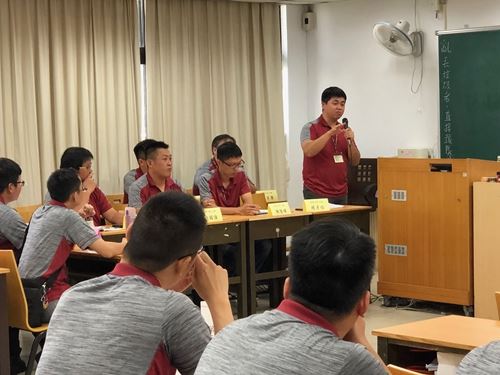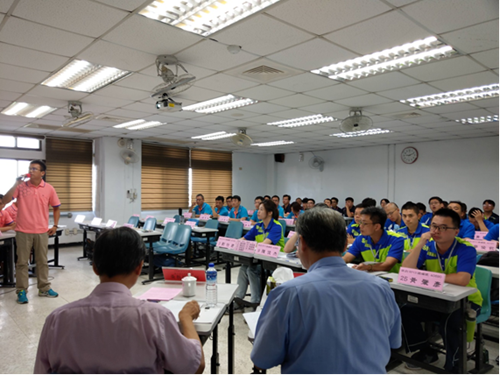Goals
To nurture a police aiming to be promoted as a police officer with needed knowledge and capabilities, as well as reserve mid-level police service manpower.
Trainees
Trainees are limited to rank-1 police. Once they reach a specific level of performance appraisals and years of experience, their employer can recommend them to participate in this training. Annual number of trainees is around 1,200.
Courses
According to the annual training course list promulgated by the Civil Service Protection and Training Commission, the courses have six units, i.e. “important national policies and issues”, “administrative knowledge, capabilities and practices”, “civil service laws and practices”, “government governance and national development”, “course scoring and assessment”, “course mentoring and general activities”. The training period is four weeks; 120 hours courses.
Features
- Teaching material research and development: the design of training materials and cases for this training is based on job properties, i.e. police, fire fighters or coast guard personnel. The lectures are given by separate classes. To revitalize teaching activities, we introduce diverse teaching methods, use digital technology, and produce thematic micro films as learning aids. We expect that our trainees can be involved in learning anytime and anywhere to enhance training effects.
- Cross-disciplinary learning: this training mixes all trainees together in class regardless of their employing institutions or professions, and separates them into groups based on project research themes. This helps with their learning in class, as they can exchange views, brainstorm together and learn from their peers.
- Teamwork: training courses integrate with current public issues to formulate research topics. Through team interaction, brainstorming processes and integration of trainees’ diverse opinions, trainees are able to identify the cause and effect of problems in practical scenarios, and propose strategic solutions.
Assessment
“Life management, group discipline and activity performance” scores” and “course scores”. “Course scores” are divided into “project report” and “examination scores”. “Examination scores” is“written test”, which is open-book examination.
|

Trainees make an oral presentation in the
project discussion course
|

Trainees make an oral presentation in the
project discussion course
|